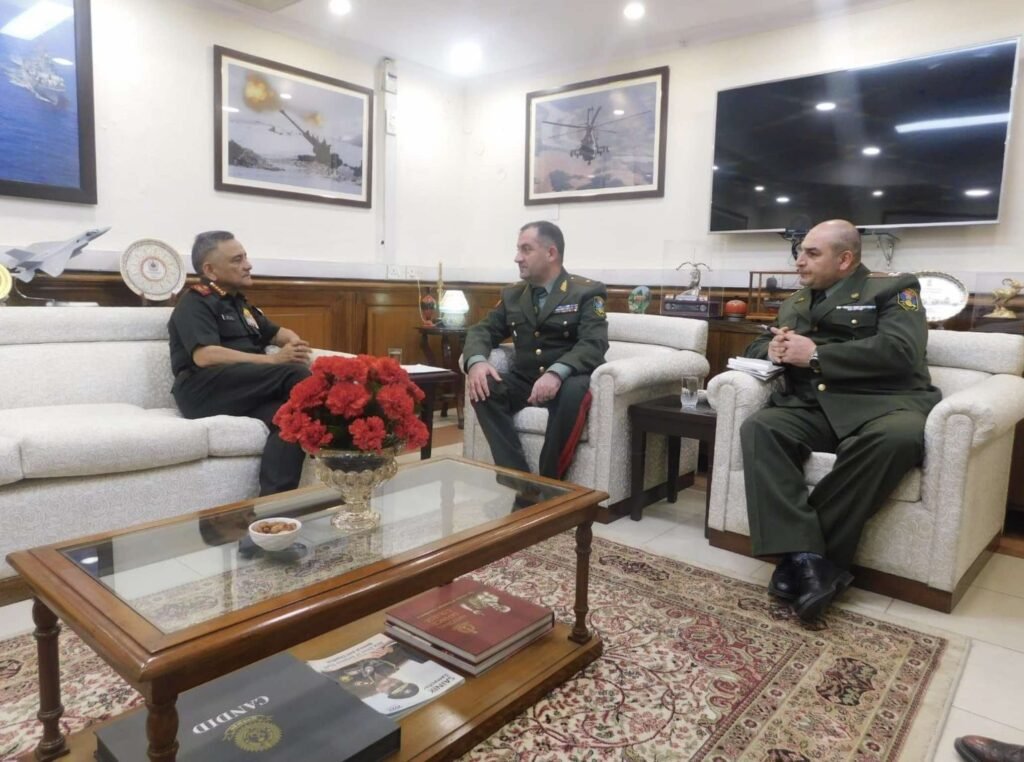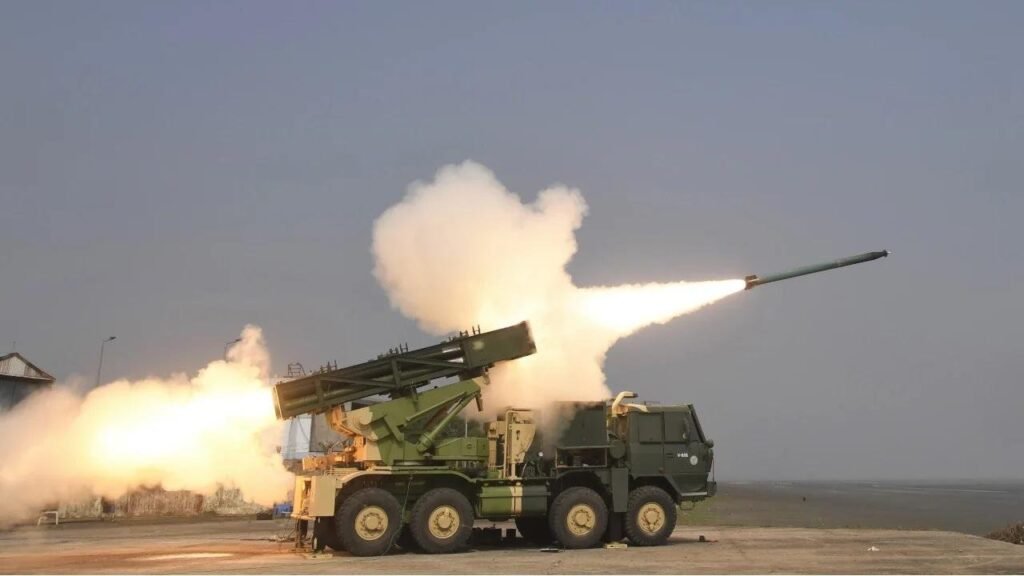Reports suggesting that Armenia, through Iran, has received a consignment of India’s native Pinaka rocket launchers, has caused a stir of protest from its perpetual adversary, Azerbaijan.
Caliber.az, an Azerbaijani news platform, revealed footage on Tuesday evening showcasing a camouflaged convey, advancing through the Iranian boundary point at Nurduz, towards Armenia. The assertion was that this convoy was most probably transporting military freight, dispatched from the eastern coastline of the Caspian Sea to the Iranian harbour at Bandar Abbas.
Sourcing from independent voices, the cargo’s origin was reportedly traced back to India, whose martial-technical associations with Armenia have seen a significant upswing in recent times.
Armenia and Azerbaijan have been engaged in a territorial dispute over the dominion of Nagorno-Karabakh that lead to a 45-day conflict in September 2020. A peace treaty, mediated by Russia, temporarily halted the hostilities until 2022, when recurrent truce infringements snowballed into another two-day skirmish in September, followed by scattered instances of border clashes.
Merely hours after the news broke on Tuesday that Indian weaponry had made its way into Armenia, Hikmet Hajiyev, the foreign policy counsellor to the Azerbaijani president, summoned the Indian ambassador to the nation, Sridharan Madhusudhanan. As reported by Azer News, Hajiyev underlined Azerbaijan’s apprehension over the expanding military alliance between Armenia and India, and the viral circulation of images and videos purporting to exhibit the translocation of Indian-produced armaments to Armenia through Iran.
The report further states that Hajiyev voiced his dismay over India’s alleged supply of deadly weaponry to Armenia during peace talks with Azerbaijan. This, he purported, was a green signal for Armenia’s militarisation and an uptick in regional tension, erecting roadblocks in the path to lasting peace and stability in the South Caucasus area.
Hajiyev reportedly argued that such actions were incompatible with India’s self-declared foreign policy, grounded on the norms of international law, as well as the historic “Bandung Principles” of the Non-Aligned Movement. He conveyed the deep-set apprehensions of the Azerbaijani government to Delhi officials, urging them to reassess India’s decision about arming Armenia with lethal armaments.
ThePrint revealed that Armenia, amidst its simmering tensions with Azerbaijan who is perceived as an ally of Pakistan and Turkey, has approached India for the acquisition of multiple military systems.
In the previous year, Armenia procured a mounted 155mm 39-calibre artillery system, produced by Bharat Forge, a private defence firm of the Pune-anchored conglomerate, the Kalyani Group. September of the same year saw Yerevan cementing a government-to-government contract with New Delhi for the indigenous Pinaka multi-barrel rocket launchers, anti-tank missiles and ammunition.

In a bid to deepen the defence ties with India, Armenian Defence Minister Suren Papikyan engaged in talks with his Indian counterpart Rajnath Singh, during the sidelines of the DefExpo held the previous August.
As reported by ThePrint, Armenia has set its sights on inking more defence pacts with India, encompassing the procurement of drones, counter-drone mechanisms, and loitering munitions, in addition to mid-range surface-to-air missile (SAM) systems like the Akash, engineered by the Defence Research and Development Organisation (DRDO).
Analysts have noted that despite the physical distance between them, an “indirect linkage” has emerged between Armenia-Azerbaijan and India-Pakistan in recent years.
In 2017, a joint statement was issued by Turkey, Azerbaijan, and Pakistan, instituting security cooperation and building further bilateral military aid agreements. Azerbaijan later deployed Turkish drones during its 45-day skirmish with Armenia in 2020 and is speculated to be negotiating with Pakistan for the acquisition of the JF-17 fighter aircraft.


